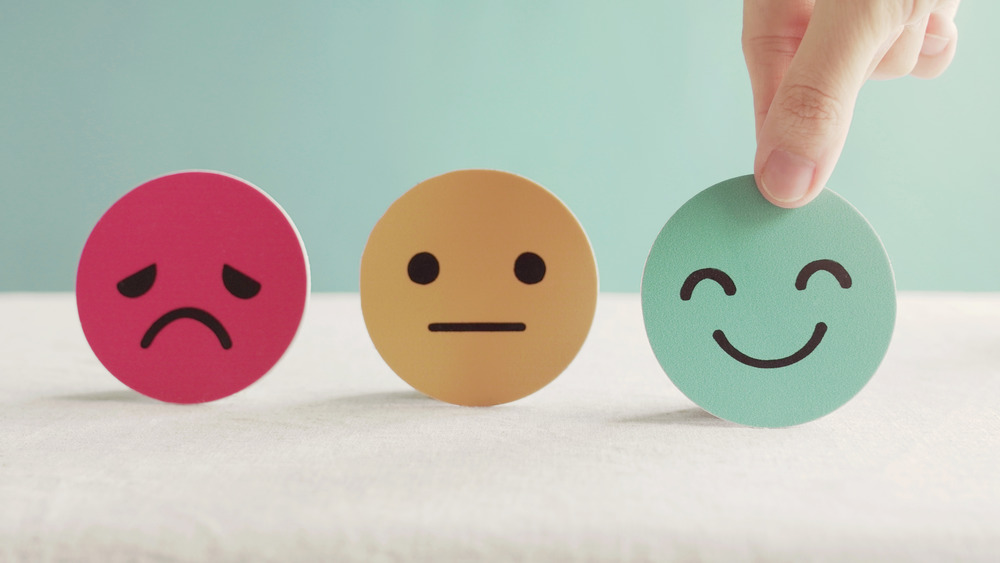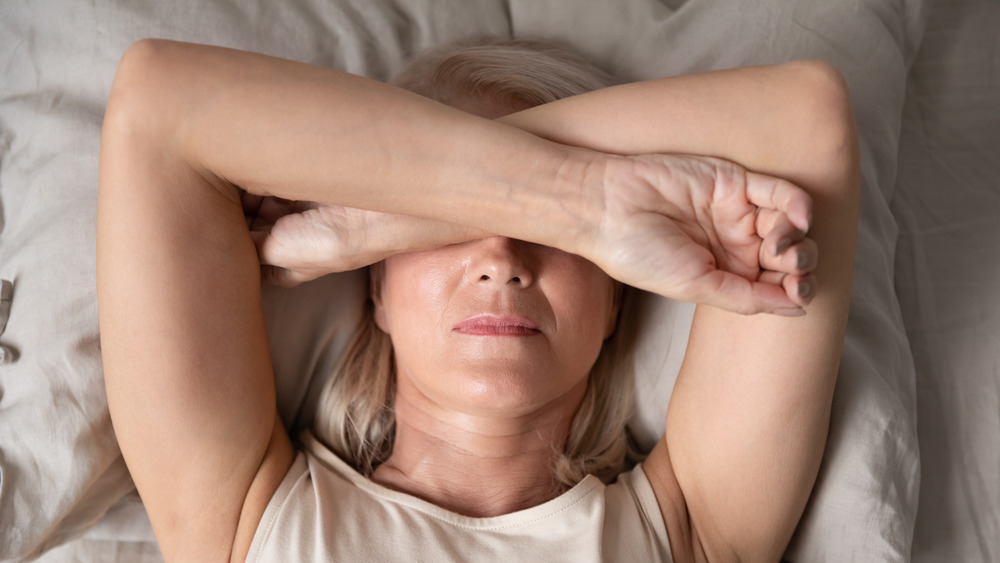This Could Be The Most Important Thing You Do For Your Mental Health
Sleep may be the most important predictor of mental health in young adults, according to a new study published in Frontiers in Psychology. Researchers from the University of Otago, in Dunedin, New Zealand surveyed more than 1,100 young adults between the ages 18 and 25 to measure and compare their sleep, exercise, and nutritional habits with their mental health (via ScienceAlert). The study participants were asked about their diet, physical activity, mood, and sleeping habits.
Researchers found that, while diet and exercise were important, sleep quality and quantity had the largest impact on participants' mental health and well-being. People who slept for 8 to 12 hours per night and had a better quality sleep reported experiencing fewer symptoms of depression, while those who slept poorly for less than 8 hours reported experiencing more symptoms of depression. Individuals who slept too long, however, also reported higher depressive symptoms.
"This suggests that sleep quality should be promoted alongside sleep quantity as tools for improving mental health and well-being within young adults," Shay-Ruby Wickham, the lead author of the study, said in a statement.
How to improve your sleep for better mental health
While diet and exercise are still important factors that can influence your mental health, it's hard to beat a good night's sleep. For those dealing with mental health disorders, it might be difficult to either stay asleep or fall asleep in the first place. If you're struggling with your sleeping habits, it might be time to start making some lifestyle changes.
You can establish better sleeping habits by setting a bedtime for yourself and sticking to it, even on the weekends (via Verywell Health). This will help regulate your sleep cycle. You can also eliminate screen time about an hour before bed. Depending on how tempted you are, you might have to remove all of the electronic devices from your bedroom. Another solution is to avoid drinking caffeine or alcohol or eating large meals before bedtime. Getting some exercise during the day can also make it easier to fall asleep at night. With these small changes to your sleep habits, your mental health could see some benefits.


